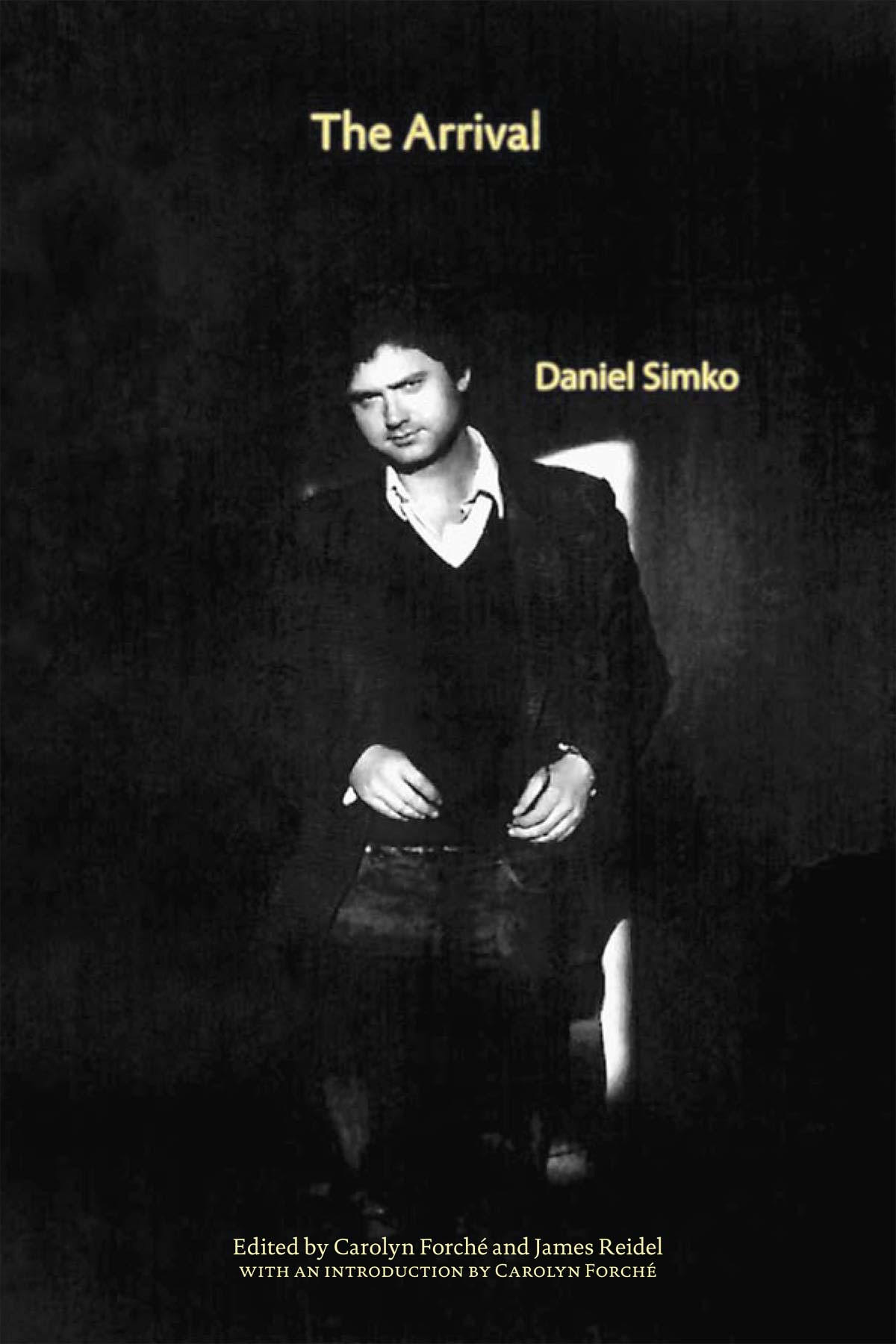
paper • 100 pages • 15.95
ISBN-13: 978-1-884800-92-4
Edited by Carolyn Forché and James Reidel with an introduction by Carolyn Forché
A Stahlecker Series Selection
Poet and Translator Daniel Simko (Autumn Sonata: Selected Poems of Georg Trakl) emigrated with his parents to the U.S. from Czechoslovakia after the 1968 occupation, and lived here until his death at the age of 45 in 2004. A poet of lyrical intensity and emotional precision, a reader steeped in the traditions of European art and philosophy (he writes poems to the memory of Samuel Beckett and Thomas Bernhard), a writer aware of the impositions of violence on expression—having walked the occupied Slovakian streets with his father, shouting at the soldiers in tanks, he was beaten on his first day at school in the U.S. by boys who could not understand his English—Simko remained reticent about publishing. Thanks to his literary executor, Carolyn Forché, and Jim Reidel, Simko’s poems are finally available in an American collection, The Arrival, which maps a striking choreography of travel, memory, and the body.
The poem, for Simko, is a means of longing, of heading headlong while thinking back. What he says of longing is true of the poem: “it is a score for voice.” The power of the lyric poem is not to capture the individual but to recover voices from the edge of disappearance. “All night you have been tearing maps in your sleep. / Your autobiography,” he writes, teaching us that what survives is not the self but the actions of the self, the words uttered. “I am among you / singing. We / are growing / into words.” The Arrival reaches us with a wisdom that suggests it has always been here, a book we have been carrying in our bag all this while without realizing and yet all the more secure for the knowledge inside.
“Simko’s posthumous English-language debut is a long-awaited event for those who have known about his haunting poems. Simko was born in Czechoslovakia in 1969 and moved to the U.S. after the Soviet invasion of the country in the late ’60s. He lived much of his life in New York—writing, participating in the literary scene, and translating an acclaimed volume of the poems of Georg Trakl—and died in 2004. Now, his executor, the poet Carolyn Forche, has shepherded his poems, which he was reluctant to publish in his lifetime, into print. Like Charles Simic, though devoid of Simic’s playful humor, Simko’s poetry has as its backdrop a hazy, surreal sense of life in a war-torn Eastern European landscape: ‘I have mentioned fists, and departures,/ the dumb choreography of the blind.’ These poems are fragmentary but always sharp, their emotional weight clear. Simko probes the self, looking through pinholes for glimpses of other people: ‘I wake up/ and you come/ with a shawl/ black with stars.’ And, like Frank Stanford, another poet whose influence has spread posthumously, Simko writes with haunting precision about death: ‘I am entering you the way an angel enters a scythe.’ This book will be a bittersweet discovery to many who will wish this poet had more time.” —Publisher’s Weekly Starred Review (Nov.)
“This, Svetozar Daniel Simko’s first book of poetry in America, is also his last, so The Arrival is at once a book of presence and absence, the shimmering debut of a lyric poet whose reticence kept him from a wider audience during his life—and it is at the same time the quiet culmination of his life’s work. . . .” — Carolyn Forché
“Simko was born in Bratislava in 1959, emigrated/fled with his parents after the Soviet invasion in 1968, attended Oberlin and Columbia, translated Trakl, and worked as a librarian at the New York Public Library until his untimely death in 2004. He wrote his poems in English and published a few in journals, both here in the States and in translation in Europe. An earlier book appeared posthumously in Bratislava. This is his first American book publication — his ‘Arrival’ — and his last. Tonally and formally, the poems are clear kin to the Soviet Mitteleuropa house style of Popa, Sorescu, and Holub: simple sentences, stark and dramatic imagery, wry fatalism, winks of humor. In terms of content, of particular note is the poet’s (wholly understandable) obsession with deracinations both geographical and lingual. The poems of displacement — from the homeland and from the mother tongue — are . . . well, stunning. They leave me speechless. They sound like poems trying to carve themselves into my head.” — Joel Brouwer Harriet